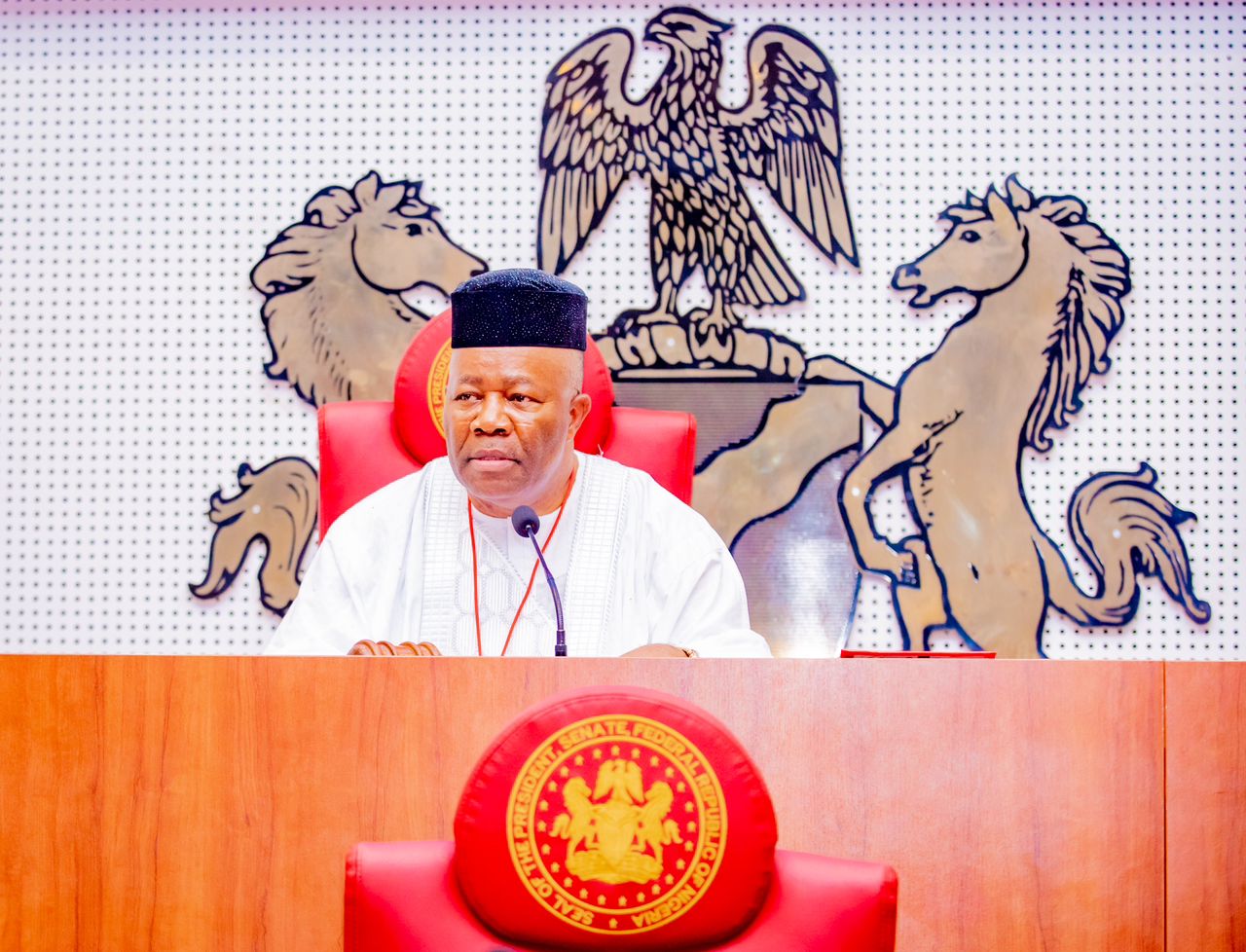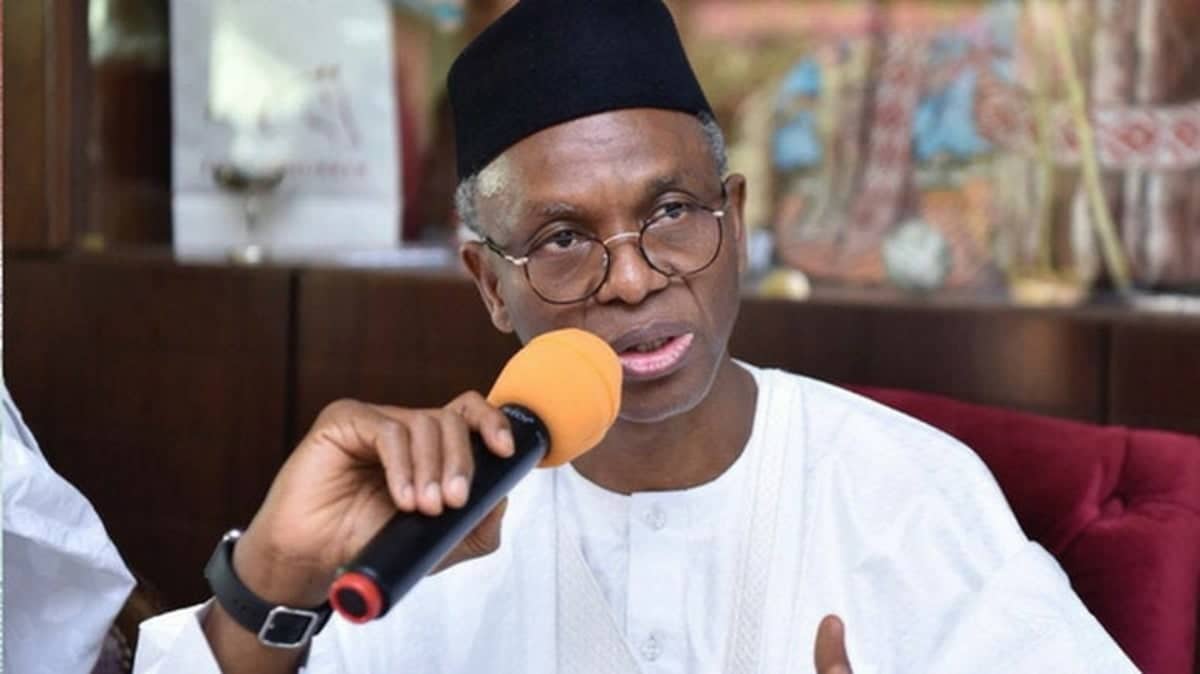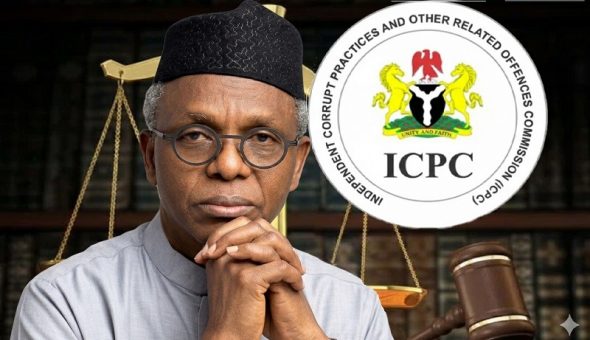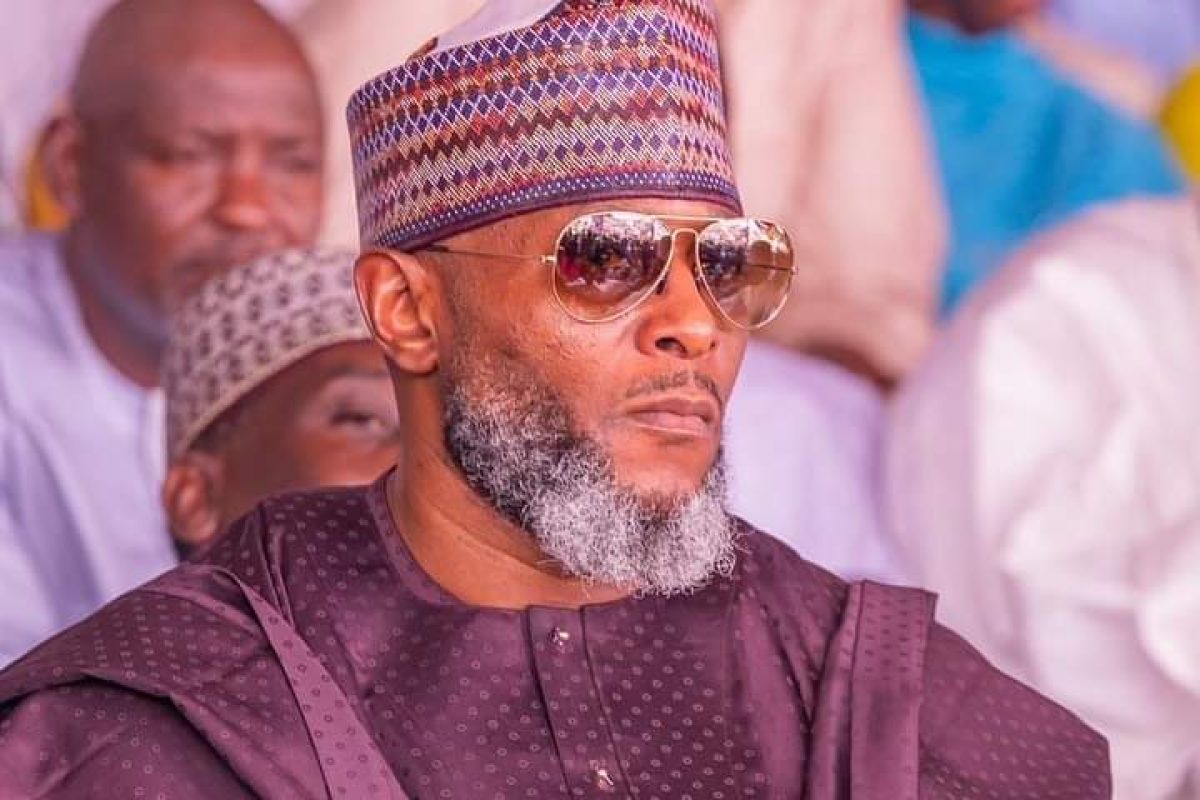Akpabio, First Southern Senate President in 16 Years, Faces Risk of Enwerem, Okadigbo Treatment
Senate President Godswill Akpabio, the first Southerner to hold the Senate president position in 16 years, is facing a formidable challenge to maintain his seat as opposition from within and outside the ruling party intensifies.
Akpabio, a former governor of Akwa-Ibom State, is encountering resistance to his leadership style in the upper chamber, often referred to as a “retirement home” for ex-governors by many Nigerians. Notably, some of the lawmakers opposing him are members of the ruling party, the APC.
Senator Ali Ndume, who initially coordinated Akpabio’s campaign, is now in open conflict with him, while Elisha Abbo was a key figure in the anti-Akpabio movement until his removal from the House.
Ndume has openly challenged Akpabio twice, and last week, he was ruled out of order by Akpabio, after which he left the Chamber, although he later claimed he did so to pray at the Mosque. However, Ndume is viewed by many as not a formidable opponent due to his history of challenging Senate Presidents without any success. In 2015, he supported Bukola Saraki but was later removed as Leader of the Senate when he challenged the former Kwara State Governor.
Although Abbo has been removed from the Senate following a Court of Appeal decision, the danger is not over for Akpabio. It’s worth noting that Akpabio did not secure an overwhelming majority when elected; despite the endorsement from the president and the party, he received 63 votes, while Abdulaziz Yari garnered 46 votes.
Insiders in the Senate have revealed that there are senators who see Yari as a viable alternative in the face of opposition to Akpabio, who is now confronted with challenges similar to those faced by former Southern Senate presidents. From 1999 to 2007, five Southerners held the Senate President seat, with three of them being forced out for various reasons. In contrast, Northerners who held the position had relatively stable tenures.
The distribution of the Senate is seen as a significant factor in the challenges faced by Southern Senate Presidents. The South has 51 Senators, while the North has 58 Senators, and a majority of Senators from the South belong to opposition parties.
A senior legislative aide noted that Akpabio needs to be cautious in managing Senators, many of whom are former Governors themselves. Additionally, the distribution of appointments by President Tinubu has not favored Akpabio, as Northern Senators have expressed concerns about what they perceive as the “yorubanisation” of the government. Akpabio’s role in confirming these appointments has caused dissatisfaction among Northern Senators.
Also Read: ‘No crisis in Senate’ — Akpabio insists after visiting Tinubu
However, many Senators are reluctant to oppose the Senate President due to their desire for increased funding of the National Assembly, especially with the 2024 budget on the horizon. President Tinubu allocated N70 billion to lawmakers at the start of this Assembly, and for the first time, all members of the National Assembly will receive SUVs instead of the usual Toyota Camry.
Currently, Akpabio enjoys the support of the President and key figures such as Deputy Senate President Barau Jibrin, Opeyemi Bamidele, and Solomon Olamilekan, who are working to protect his position.













